Articles + Videos
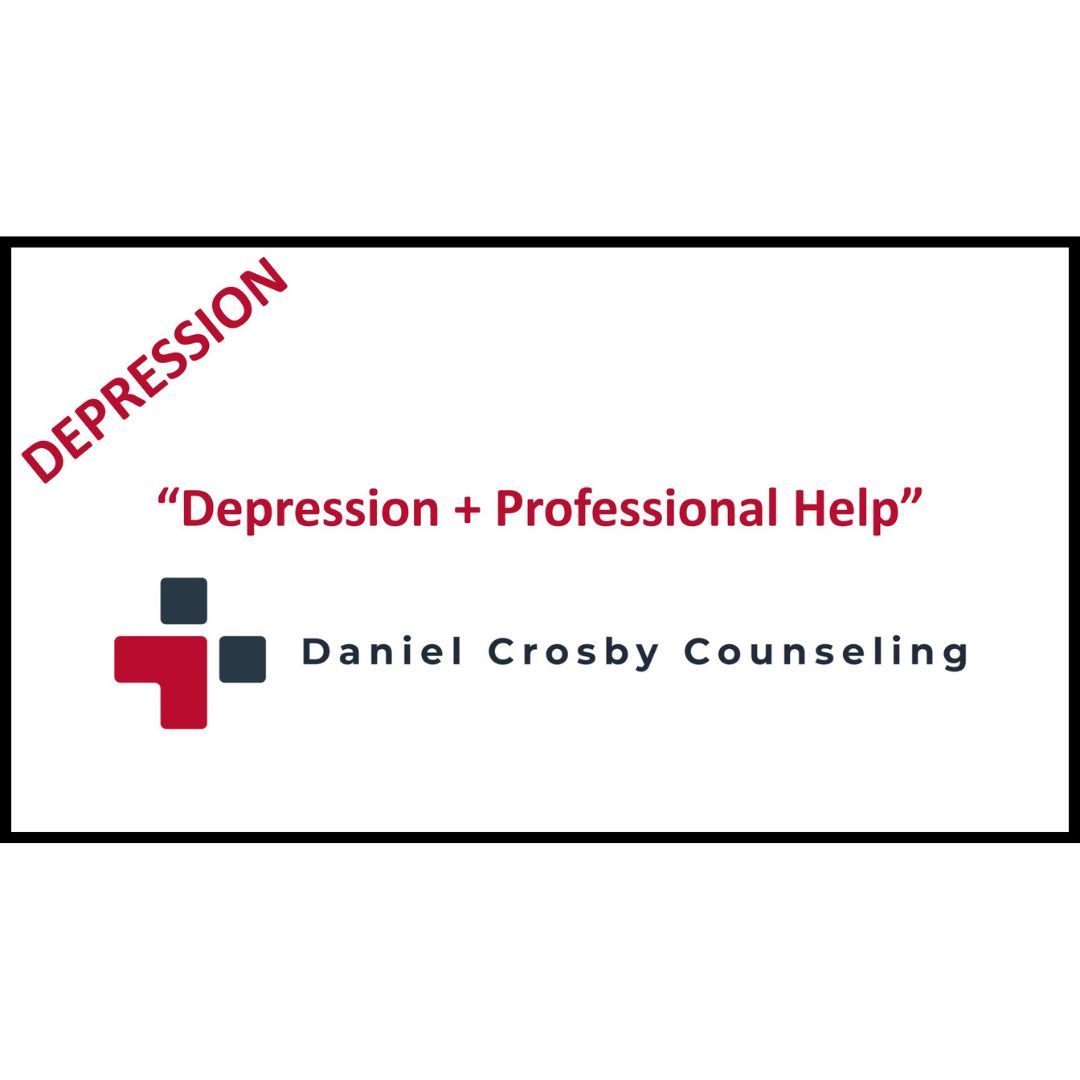
Depression + Professional Help So the big questions is: “How do I know when it’s time to go see a counselor about depression? When is it beyond just trying self-help strategies?” Only you know how you’re feeling internally but here are some signs that it’s time to reach out: • Suicidal thoughts – Call or Text 988 Immediately! • Can’t function with work – You don’t care that there may be consequences for poor performance and you’re slacking on deadlines • Parenting – You’ve given up on typical caretaking duties like healthy meals, cleaning up, or setting healthy boundaries with the kids • Finances – You have a “screw it” mentality where you stop budgeting and just spend to try to find happiness OR You stop paying bills altogether • Hygiene – Your personal hygiene tanks and you don’t care about brushing your teeth, bathing, wearing deodorant, etc. • Isolation – You’ve consistently been avoiding others and turning down attempts of friends and family to pull you out of your slump • Significant change in the way you normally function day to day Call a therapist if you want… • Accountability • An outside perspective • To dig deeper into the “why” • A judgement free zone • New ideas to try Before beginning medication, ask these questions: • “Hey doc! What is your philosophy on prescribing? (Conservative, Experimental, etc?) • “Hey doc! Is there a time limit to how long you will keep me on this medication? • “Hey doc! How will you be measuring how my progress and when to raise/lower dosage and begin or discontinue a medication?” • “Do I feel at peace with how the Dr. explained this medication?” • “Did the Dr. have the heart of a teacher or were they quick to prescribe without hearing me out?” • “Did the Dr. take time with me or rush in and rush out? • “Have I done my own research on the medications the Dr. is recommending?” Homework: If you’re not sure about any of the above, give me a call. I’ll happily do a FREE 15 Minute Consultation Call whether you want to come to see me or not. I’ll give you my professional opinion about what might be the next right step.
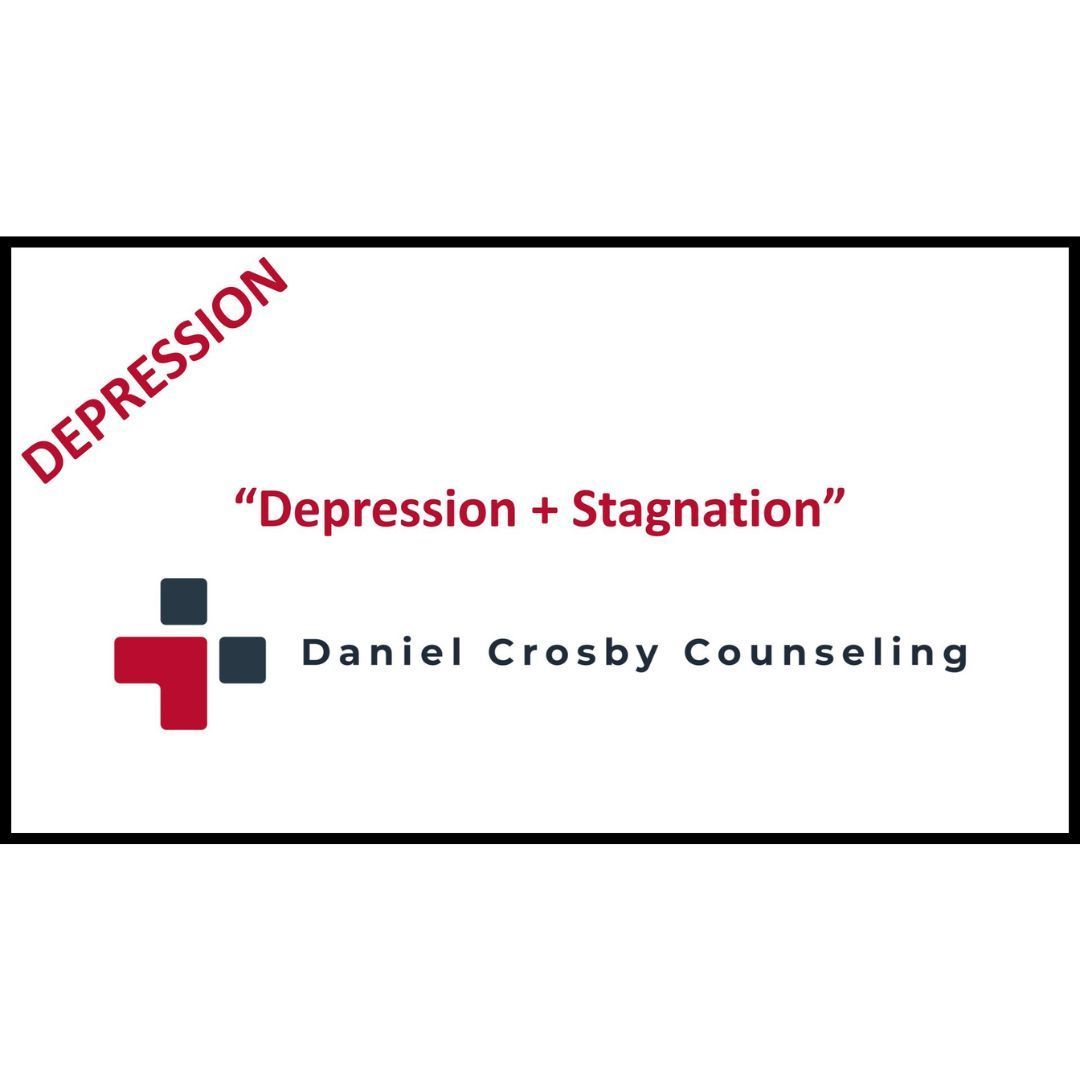
Depression + Stagnation What do you do when you’re doing all the right things and still feel depression lingering? Depression isn’t an on/off switch that goes away overnight. It rarely gets better in an instant. There’s a progression to it. If you’re investing in some of the things we’re talking about in this series CONSISTENTLY then you’ll probably see some positive changes over time. In the meantime, try these ideas to help boost you out of your stagnation that you’re feeling. 1. Acknowledge progress over perfection. You didn’t get here overnight. Where did you begin and where are you now? What has improved? 2. Go serve someone else in a new way – Focusing on others is a good way to boost the way you feel about yourself. 3. Consider a shock to the system. A trip to a new place, a different therapist, a new hobby, a job change, or making a new friend can all make us feel alive again if we’re stagnant. Homework: Finish this statement: “In the last week, the thing I’m the most proud of myself for doing is_______.”
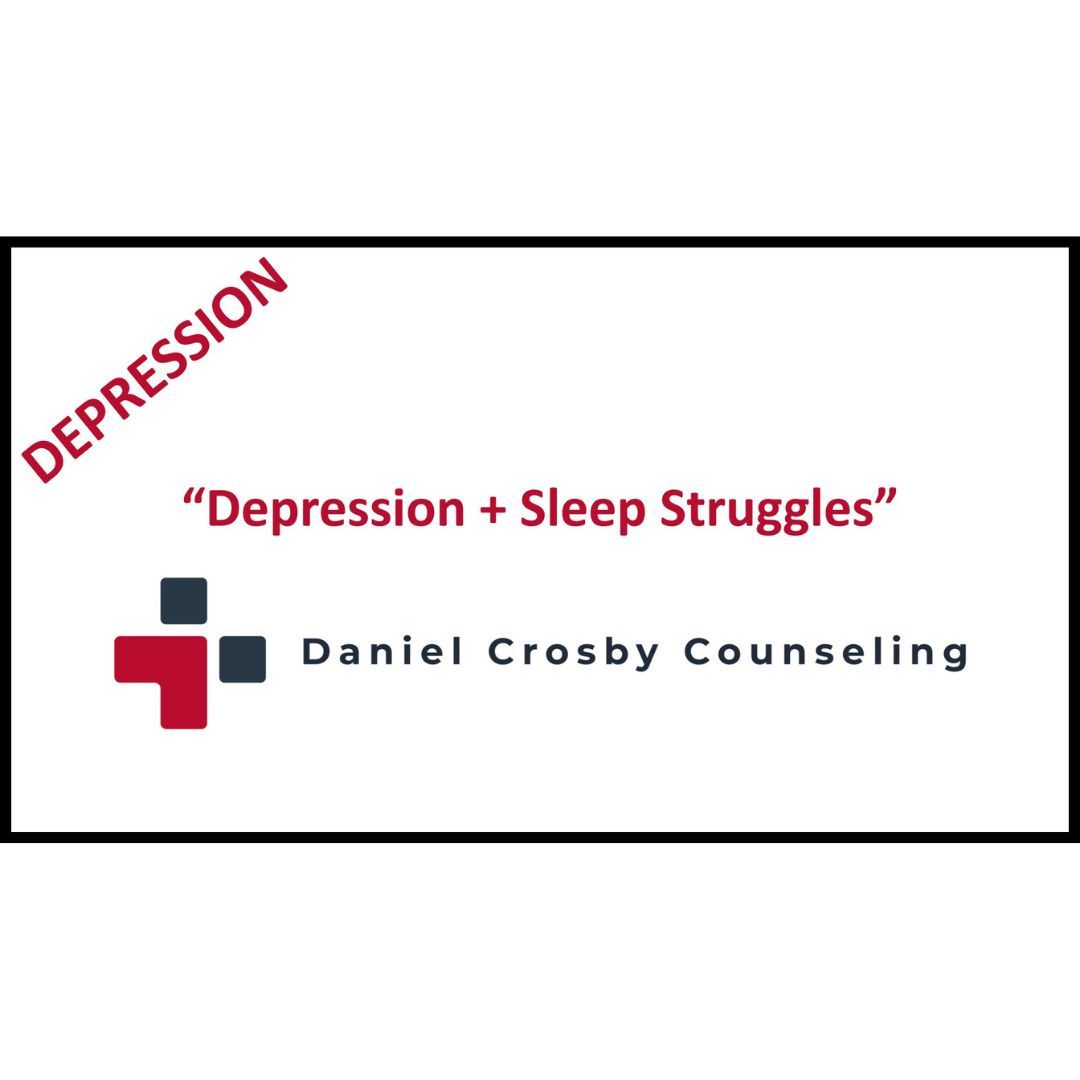
Depression + Sleep Struggles Sleep is one of the biggest struggles we face when we’re depressed. Oddly enough the diagnosis manual says “Insomnia or hypersomnia nearly every day” as one of the symptoms. Whether you can’t sleep at all or you’re sleeping all the time it can really rock your world. Maybe your mind is just spinning with all the jumble of thoughts in your head. Or maybe you have no energy and you’re struggling to just do the basics before going back to bed. Here are 3 ideas to get the sleep routine back on track: 1. Create a predictable wind-down ritual – Early dinner, Herbal tea, Warm bath, Good smelling lotion, Clean sheets and jammies. 2. Try “brain dump” journaling at night – Write down today’s wins and loses as well as tomorrow’s worries so your brain can let go of those things. You can relax better without ruminating on it because it’s written down. 3. Avoid doom scrolling— Replace screens with audio or soft light activity. Soothing. Uplifting reading. Devotional. Positive in/Positive out. If you must watch TV make sure it’s an emotion that competes with depression (funny!) Homework: Try a new bedtime strategy tonight and notice if it helps you wind down a little easier. Your brain and body will thank you tomorrow morning.
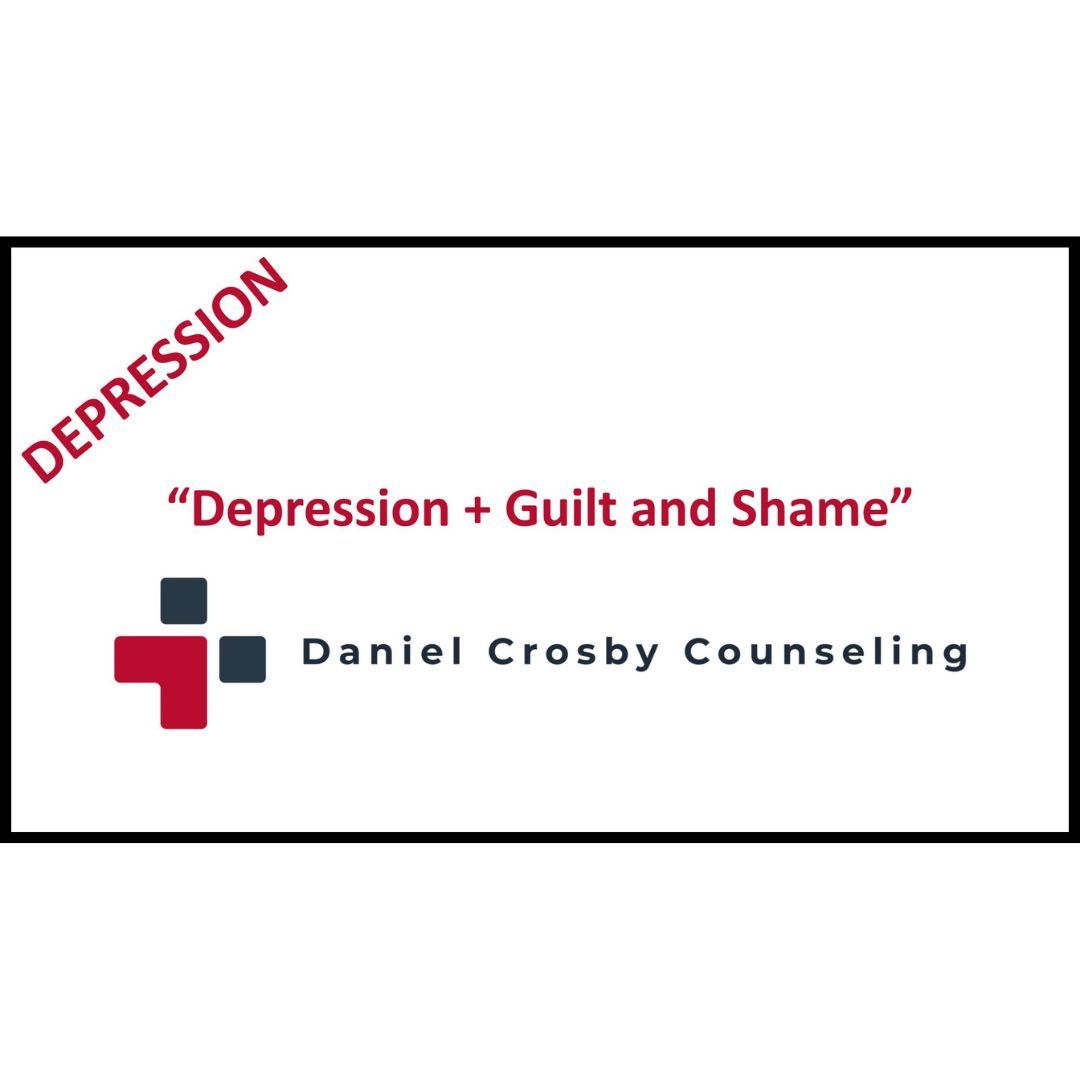
Depression + Guilt and Shame "I just hate telling my friends and family how I feel because I feel like such a burden. I’m sure they’re sick of hearing about it by now." One of the lies depression tells us is that we have to carry this thing by alone because no one else wants to help. Guilt and shame are the heaviest lies that we tend to carry but we fight lies with the truth: • Feelings aren’t always facts – Just because you feel like a burden doesn’t mean you are one. That’s what we in the biz call a cognitive distortion — your mind is offering its opinion as fact. • Asking for help is strength, not weakness – When my mom said, “Y’all come help me carry in the groceries,” I never thought she was weak. When we love each other asking for and receiving help should go both ways. It’s an honor to help not a burden. • Treat yourself like you’d treat a friend – If someone you loved felt the way you do, you wouldn’t tell them to keep it to themselves. You’d listen, support, and remind them they matter. You would even be mad at them for NOT telling you. You deserve the same. Homework: Identify your 3am friends. These are people you could call at 3am and they’d come running with no questions asked. If you don’t have any 3am people, then go back and read the post about finding the # 1 Symptom of Depression. It’s time to start building those connections.
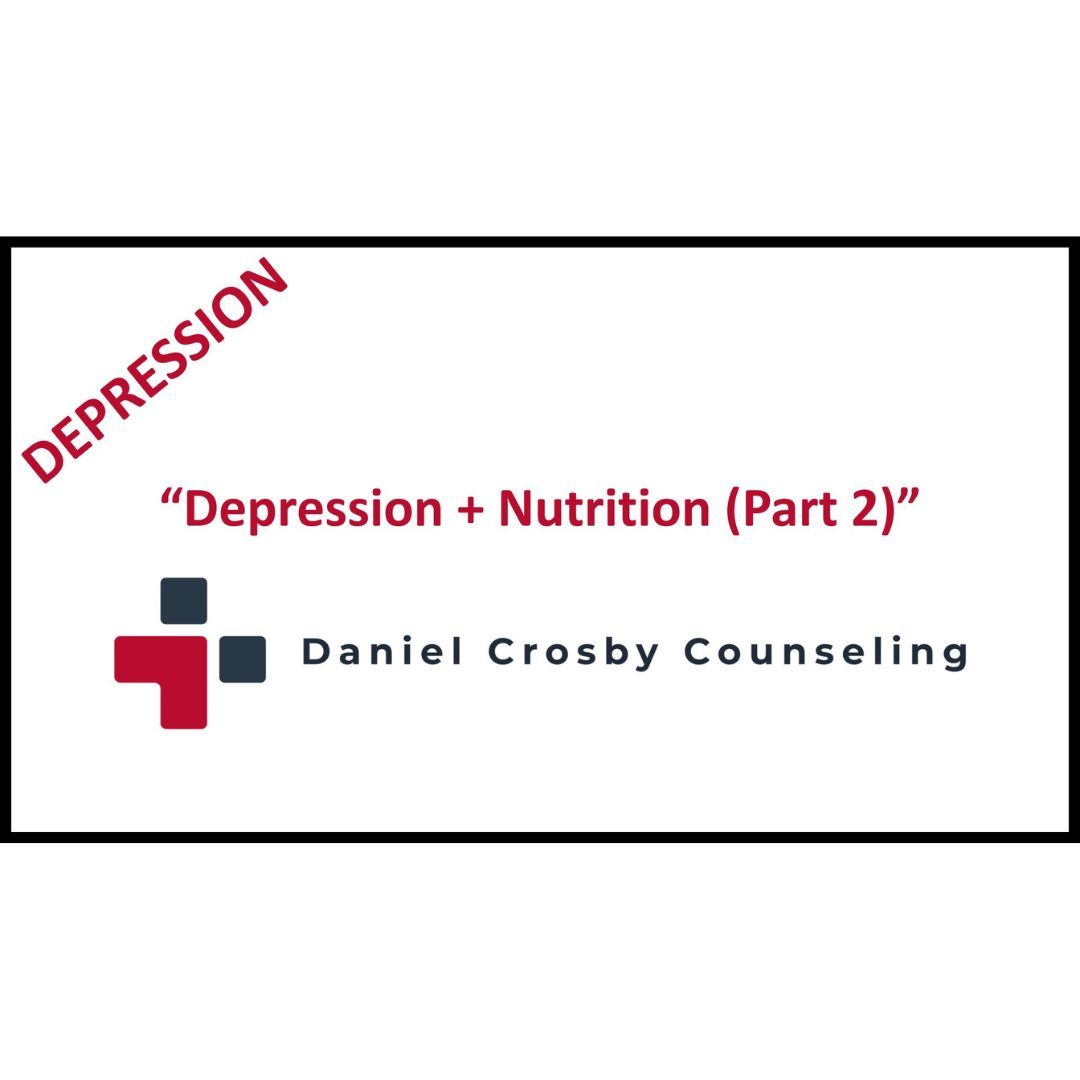
Depression + Nutrition (PART 2) Ok, so I took all the fun away from eating junk last time. So let’s talk about things that are good fuel for our bodies. 1. Lean proteins: Fish and chicken provide good lean protein which boost our longer term energy and keep us from crashing later in the day. 2. Leafy Greens: Rich in folate, which is linked to improved mood. 3. Blueberries: High in antioxidants and may help protect against oxidative stress, which can contribute to depression. 4. Sweet Potatoes: A good source of vitamin B6, which is involved in the production of neurotransmitters like serotonin. 5. Avocados: Rich in healthy fats and nutrients that can contribute to overall well-being. 6. Dark Chocolate: Contains antioxidants and may improve mood. When you’re eating these foods, you have to get up off the couch to prepare most of them. You just achieved a goal by creating a meal. Now you’re proud of yourself because you did something healthy which helps yourself talk. Now you can share a good recipe with a friend which creates socialization. It all works together! Homework: How did the Yuka App from last week work out? There were probably some surprises in your pantry. This week, look up a healthy recipe, cook it, and notice if how you feel eating something healthy. Bonus: Here’s a fun recipe my wife and I like to cook, especially in the winter months when we’re hankering for something fresh. Sweet Potato Bowls: Roast whole sweet potatoes in the oven until you can stick a knife through it easily. (Should take close to an hour depending on the thickness of the potato Cut open and hollow out the potato into a bowl (It’s going to be really hot!) Top with scoop of black beans – we buy the canned ones (heat on the stove while potatoes cook) Add toppings: ½ Sliced avocado Halved cherry tomatoes Chopped onion Chopped cilantro Sour cream or a drizzle of ranch dressing Salt and pepper to taste
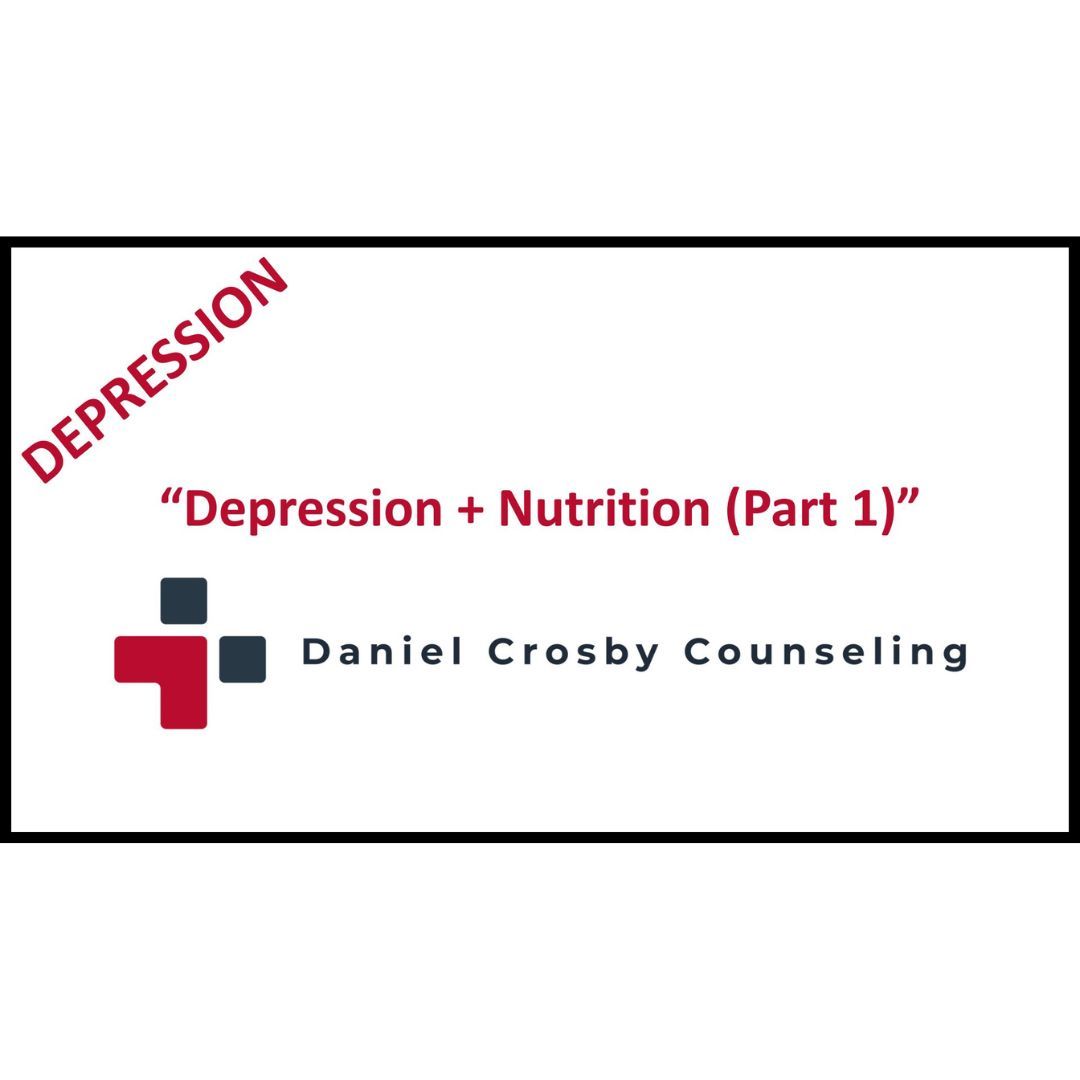
Depression + Nutrition (PART 1) Today we’re talking about the obvious. If you eat crap you’re going to feel like crap. I’m not preaching at you. I do it to. No shame here. I would eat a family sized bag of chips everyday for lunch if I could. The way we feel is directly tied to what we eat though. It’s like fuel for the car. If you get some bad fuel it’s going to mess your engine up. So what are some of the things killing us? 1. Energy drinks - • Horrible for depression! They’re full of artificial chemicals and they cause you to spike and then crash. I have clients who are legitimately addicted to these just like someone is addicted to cocaine or heroin. 2. Marijuana - • It’s not really a food unless you’re using edibles, but I’m tired of people trying to convince me that marijuana is good for you. Marijuana might be one of the biggest contributors to your depression if you’re a regular user. • Warning: If you’re taking depression or anxiety medication while using marijuana, your brain is probably the most confused thing on the planet. 3. Ultraprocessed foods - • This is pretty much anything sold in a gas station or anything that has an expiration date of more than a week or two. If it hasn’t been cooked the day you ate it then it is probably not contributing positively to your brain chemistry. Homework: Download the Yuka App. It’s free, you can scan any barcode, and it will tell you how healthy a food is on a scale of 0-100. It will also make recommendations for healthier alternatives for low scoring foods. It’s a lot of fun to play around with in your pantry.
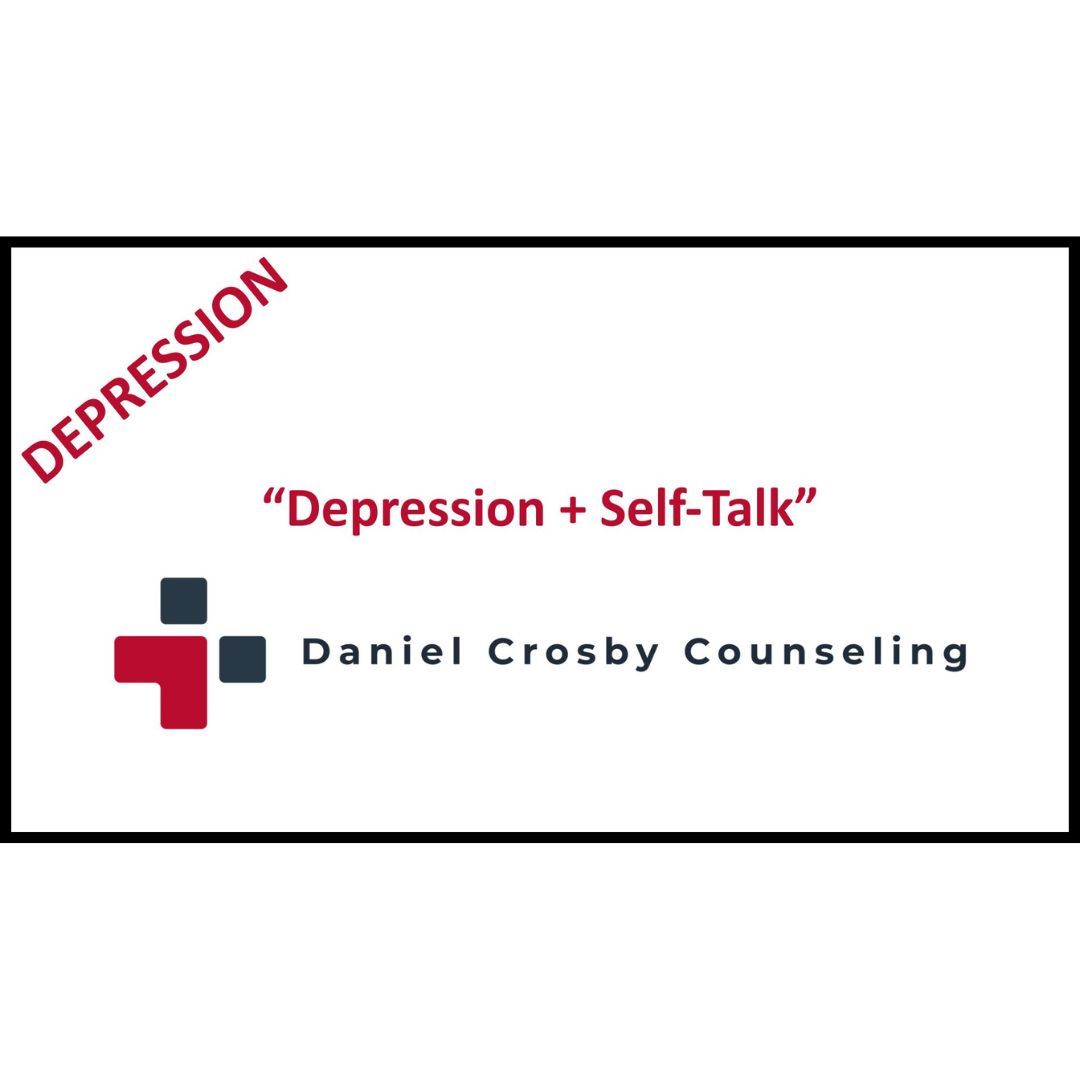
Depression + Self-Talk Can you hear that little voice in your head? It’s the one when you’re at the grocery store and you were supposed to get 3 things and you can’t remember the 3rd thing. “Dang it, what was that last thing that I needed to get? It wasn’t milk because we have milk. Was it something in the produce section? Ugh, I can’t remember.” Psychologist Ethan Kross write a book about this called “Chatter.” Chatter is when normal factual self-talk changes to darker more accusatory and judgmental words. “You screw everything up. Can’t you ever do anything right?” “No one else struggles with this and here you are frozen and stuck in it doing the same stupid thing over and over again. You’re so pathetic.” Chatter is only going to fuel your depression. Here are 3 ways to quiet the chatter in your head: 1. Separate FACT from ASSUMPTION – • It can only officially be a FACT if someone else has literally said it to you. I heard a quote recently that said, “Imposter syndrome is the fear that other people are judging you as harshly as you are judging yourself.” They aren’t. 2. Identify Negative Beliefs and where they came from – • Negative Beliefs sound like “I” Statements. “I’m not good enough” or “I’m unworthy of love.” You might want to find a good counselor to help you work through these. 3. Journaling – • Write down a response to your own chatter as if you were responding to a friend who came to you asking your opinion about their inner voice. We’re usually kinder to others than we are to ourselves unfortunately. Homework: Take 60 seconds and think about which Negative Belief seems to pop up in your head most often to keep depression alive and well? We all have at least one. What’s yours?
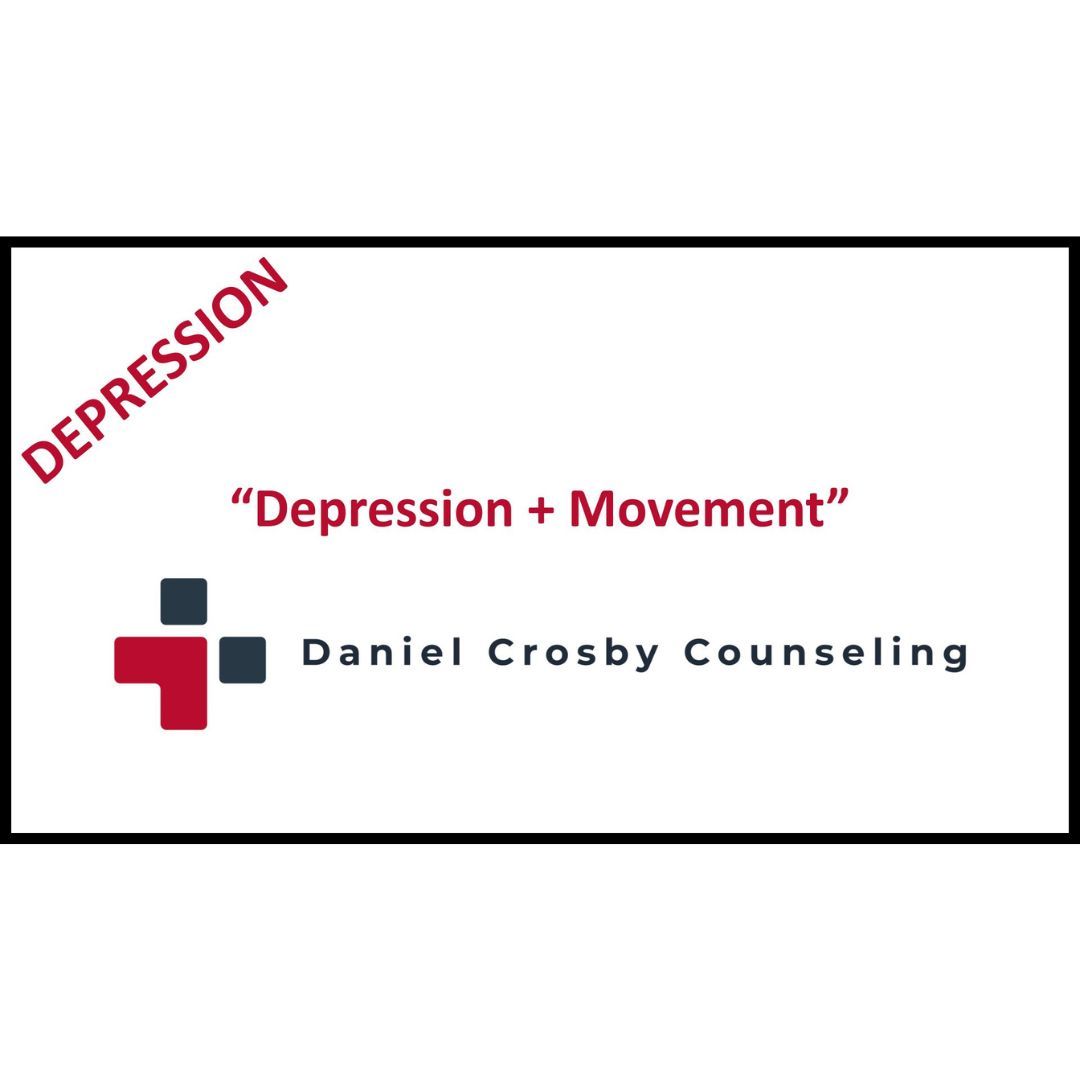
Depression and Movement Alright, you knew it was coming. This is the 2nd most important way to beat depression. The 1st is Connection. You can’t beat this thing alone. The 2nd is Exercise or Movement. I say movement because when you’re struggling, you probably don’t feel like training for a marathon or joining a CrossFit gym. But when you don’t move at all, you don’t grow at all. Depression tells us to close the blinds and to lay in bed all day long in the dark accomplishing nothing. All that is going to do is stir up more Depression. Movement gives us a small goal to achieve and it get our muscles engaged and our blood and brain chemicals flowing again. You are just simply going to feel more alive. Here are 3 simple ways to start moving again: 1. Begin with gentle movement. • It doesn’t have to involve sweating • Try a yoga video on YouTube or just • Do 5 minutes of stretching 2. Set a reminder to do three 5-minute mood walks during the day • Walk around the building at work • Walk around the house on a rainy day • Notice your breath and the cadence of your arms and legs swinging back and forth 3. Make movement enjoyable • Walk to an enjoyable destination like the local bakery or to your favorite spot on the greenway to get a picture of a waterfall • Listen to your favorite music or podcast • Socialize while moving like the old ladies power walking at the mall Homework: Try doing some sort of new movement this week that’s out of the norm for you and let the rest of us know what you did and if it made you feel better.
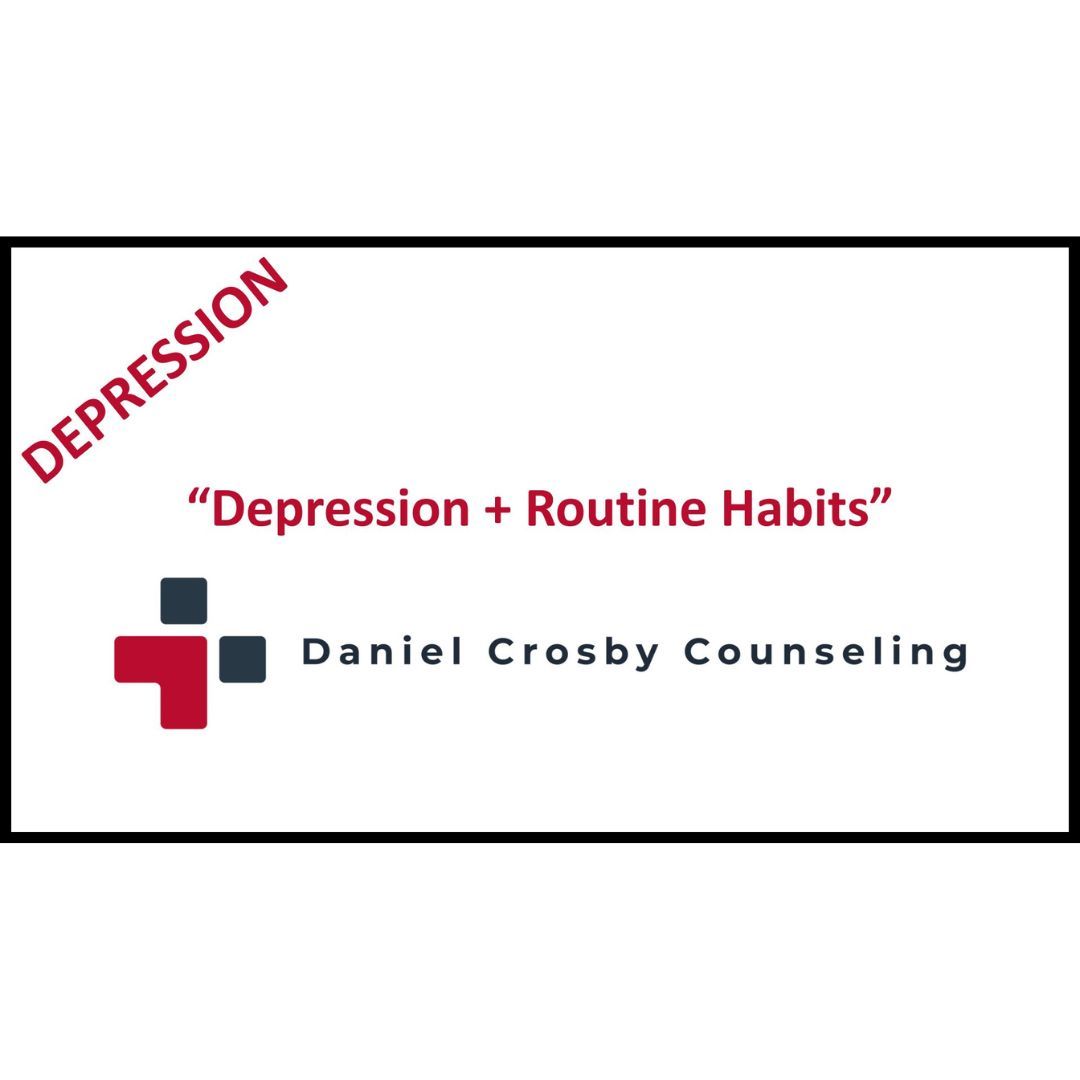
Depression + Routine Habits Ask any Kindergarten teacher if structure and routine is important. I think we crave comfort and consistency of what we know because it makes us feel safe. We like our favorite food at our favorite restaurant and we sit in the same place at church most of the time. But when depression hits, it can throw off our healthy routines and even spiral us into unhealthy habits. If you’re battling some depression you might be letting some stuff slide, like cleaning the house, eating healthy, or getting to work on time. 3 Ways to Reignite Healthy Routines: 1. Write it down – • Write down a checklist of to-do items the night before for what I plan to accomplish the next day. These can be big goal like filing your taxes or small personal hygiene goals like brushing your teeth. 2. Use accountability – • Piggyback onto someone else’s routine. If you know your buddy goes to the gym every morning at 5am, ask if he will call you every morning for a month until you create your own habit. 3. Reward consistency, not intensity, growth, or perfection – • We’re looking for reps. So what if you didn’t talk to anyone at church or sign up to serve in the children’s ministry. You showed up 5 Sundays in a row! That’s fantastic! Now go get ice cream! Homework: Pick one thing you need to get back into the routine of doing and try one of ideas above and tell us how you did.

